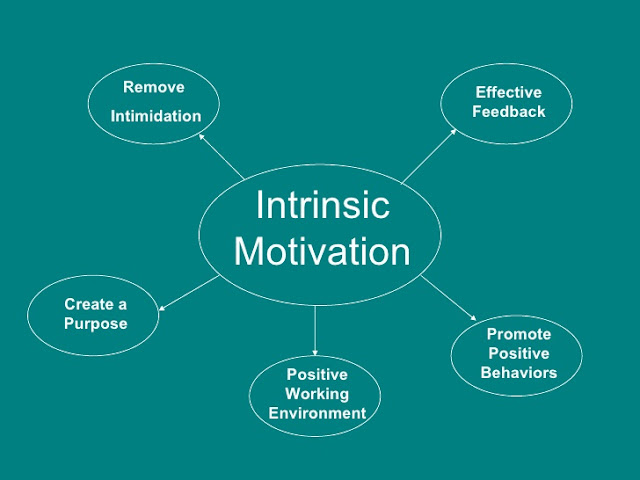Motivation can be defined as a willingness to expand to achieve a goal or reward. Therefore, motivation refers the willingness or motive that is aroused to fulfill unsatisfied needs prompts a person to expand his/her physical as well as mental efforts to act in a certain way to achieve goal or reward.
Thus, motivation is a psychological phenomenon which generates within an individual. A person feels the lack of certain needs, to satisfy which he feels working more. The need satisfying ego motivates a person to do better than he normally does.
Types of Motivation
- 1. Extrinsic motivation
- 2. Intrinsic motivation
- 3. Positive or Incentive motivation
- 4. Negative or Fear motivation
- 5. Self-motivation or attitude motivation
Extrinsic motivation: It refers to individual motivation which comes from such management policies as pay, promotion, praise, punishment, etc. It is money-related consisting of pay, incentives, benefits and services. Techniques of intrinsic motivation would be fixed salary and wages, piecework payment, performance-based incentive, etc.
Intrinsic motivation: It refers to individual's motivation which comes from the individual himself/herself. Individual motivation occurs if an individual worker feels that the given job is challenging, meaningful and interesting. Techniques of intrinsic motivation would be job enrichment, participation, management by objectives, etc.
Positive or Incentive motivation: Positive motivation or incentive motivation is based on reward. The workers are offered incentive or achieving the desired goals. The incentives may be in the shape of more pay, promotion, recognition of work etc. The people are offered the incentives and try to improve their performance willingly. Positive motivation is achieved by the co-operation of people and they have a feeling of happiness.
Negative or Fear motivation: Negative motivation refers the motivation of people through creation of fear, or punishment or threats, etc. Fear cause people to act in a certain way, In case, they do not act accordingly then they may be punished with demotions or lay-offs. The fear acts as a push mechanism.The people do not willingly co-operate, rather they want to avoid the punishment.
Self-motivation or attitude motivation: If people would be motivated through their changed attitude. It cold be possible when people understand the reality and the their attitude would be changed and ultimately they would be devoted and attracted towards the reality willingly.
Importance of Motivation
1.Encourage toward aim.
2.Acceptability to change.
3.Improvement in the creativity.
4.Better discipline, etc.
Here are 7 steps to motivate your people:
- Tell people exactly what you want them to do.
- Limit the amount of time or effort that you're asking for.
- Share in the sacrifice.
- Appeal to their emotions.
- Give people multiple reasons for doing what you want them to do.
- Be the change you want to inspire.
- Tell a story.














![[Latest] Best WhatsApp Dare Games (2019)](https://blogger.googleusercontent.com/img/b/R29vZ2xl/AVvXsEhrUxzyAlXw3C_UPtGkqRf5JWrdJMxTWdmjvEYlTfdOAdhANPJ0jAUYbwCHtwH7yKCR8EclV3uedOPgNWMLQ_9mXvZtwqfb9TxRizNRjQ78vdvt1USpSTP5tELiDszo6T1lSm22uwq1pHTh/s72-c/aaa.png)






No comments:
Post a Comment